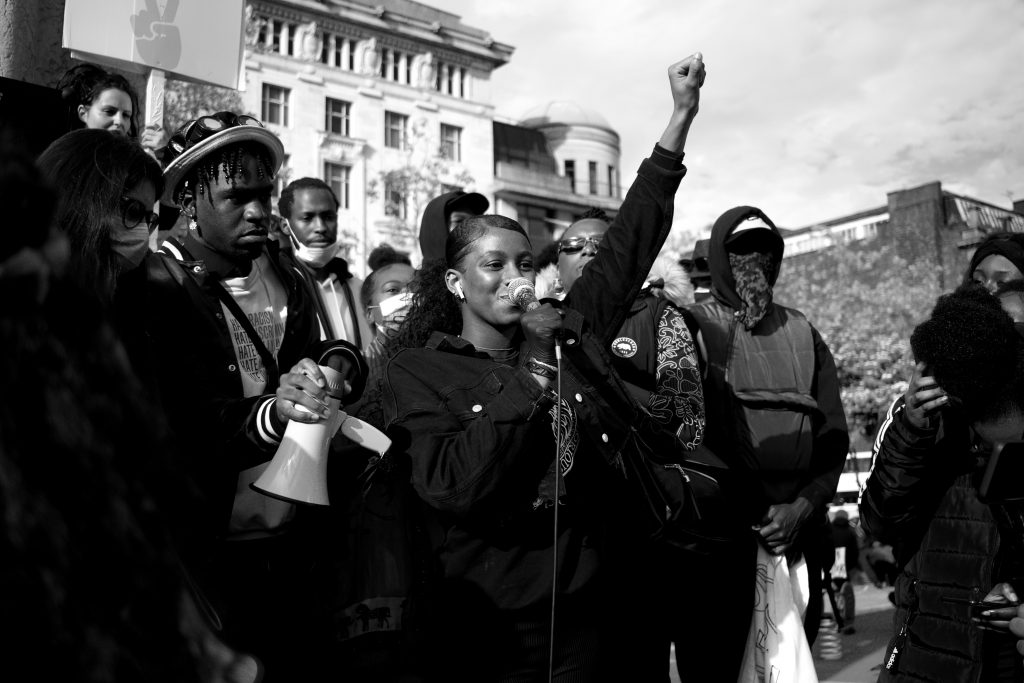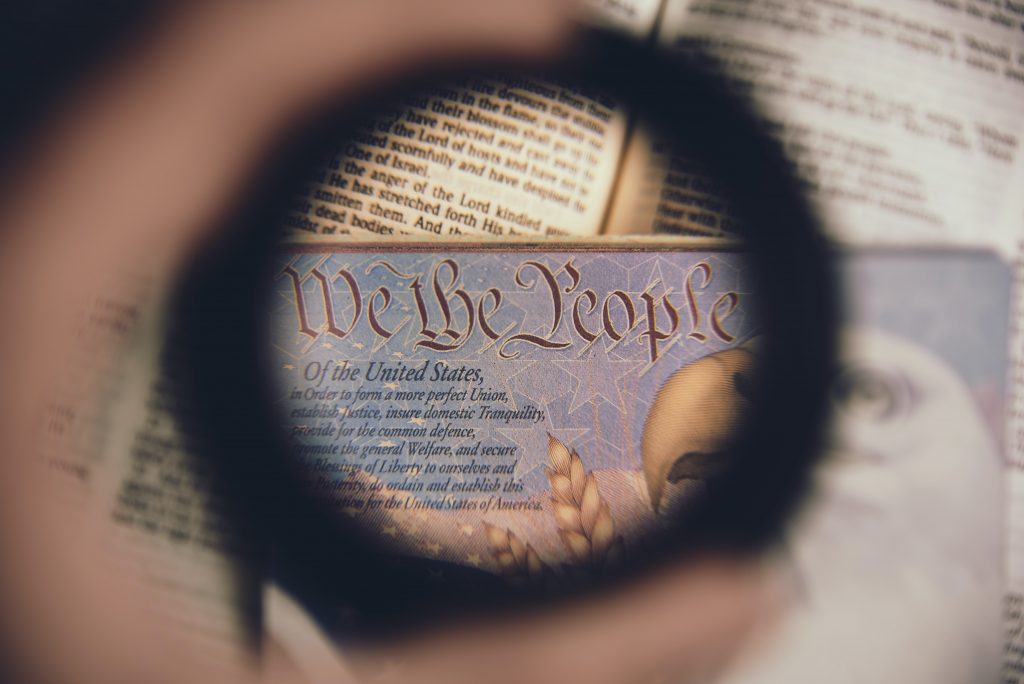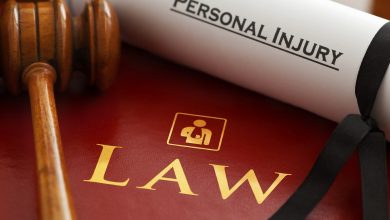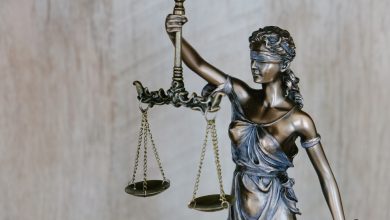What Is Considered a Violation of Civil Rights?

We know we’re all guaranteed to life, liberty, and the pursuit of happiness, but how far do your civil rights go? And what action can you take when they are violated? Mainly protected through the Constitution and legislation, a civil rights violation can be pursued in civil court. States may also provide further civil rights in their legislation. Some of these rights and freedoms afforded to you include anti-discrimination, freedom of religion, due process, and free speech. Although some of these topics are highly debated and the extent to which they should protect isn’t always agreed upon, the law provides its guidance on when a violation of civil rights has occurred.
What Are Civil Rights?
Generally, civil rights are freedoms and protections supported by the law to all citizens. However, to be a bit more exact, there are civil rights and civil liberties. Civil rights are more on the side of ensuring everyone receives equal treatment, avoiding discrimination based on race, sex, nationality, and more, while civil liberties are those specific rights and freedoms outlined in the Bill of Rights. Overall, civil rights aim to ensure that all receive equal freedoms and that US citizens play an active role in their freedom and pursuit of happiness. US Citizenship and Immigration Services explain the rights one receives upon becoming a citizen of the United States:
- “Freedom to express yourself.
- Freedom to worship as you wish.
- Right to a prompt, fair trial by jury.
- Right to vote in elections for public officials.
- Right to apply for federal employment requiring U.S. citizenship.
- Right to run for elected office.
- Freedom to pursue ‘life, liberty, and the pursuit of happiness.'”

Anti-Discrimination Rights
On a federal level, there are many protected categories that provide civil rights against discrimination. These include race, sex, religion, nationality, color, age, gender identity, sexual orientation, disability, and genetic information. Legislation will also detail in what circumstances the individuals that fit in these categories have these protected rights, but it generally will extend to employment, housing, education, transportation, health services, and public facilities. These rights are covered by law, not the Constitution, although some rights may have some overlap with those civil liberties. There have been great strides made from marginalized groups to demand that their civil rights be met, including anti-discrimination legislation for all people in every aspect of life, and some of the laws are:
- Civil Rights Act of 1964: The most obvious legislation to discuss first is this, as it is the source of protection from discrimination based on race, color, religion, national origin, and gender – although, these categories have since been extended further. This primarily dealt with, at the time, making segregation illegal, so this was the public facilities part of civil rights. Title VII of this act extended that protection with schools, employers, and labor unions. It also created the Equal Employment Opportunity Commission (EEOC) in order to ensure these rights are being protected and to seek justice when they are violated. Additionally, Title I provides equal voting rights by removing procedures that prohibited some from being able to vote. Then, Title IV prohibits segregation in schools, and Title VI ensures that federally assisted programs are receiving funds without discrimination in the distribution process. Later, Title VIII extends equal rights to all protected classes when seeking housing.
- Americans with Disabilities Act: This act ensures that those with a disability, defined as “a physical or mental impairment that substantially limits one or more major life activities,” are not discriminated against through employment, the government, communication or by using public or private services. They must receive the same opportunities as everyone else, as well as accommodations in some cases.
- Equal Pay Act of 1963: Through this act, it is prohibited to pay a lower wage because of the individual’s sex. Males and females in jobs that are substantially similar must receive the same pay. This was eventually further extended to include discrimination based on race, color, religion, sex, national origin, age, or disability.
- Immigration Reform and Control Act: While this law made is illegal to knowingly employee an individual who isn’t legally allowed to work in the US, it also establishes that employers may not discriminate based on someone’s citizenship status or national origin.
There were a lot of protected classes thrown around there, but there a few general, main categories that can be further broken down to decide exactly who they cover:
- Race: Discriminating against someone based on their race because of their color and complexion, personal characteristics, or for being married to someone of a different race is illegal. Racial discrimination can occur between individuals of the same race.
- Sex: This term has obviously had to be extended further, as sex and gender are not so clearly defined. Today, this includes discrimination because of someone’s sex or gender, gender identity or expression, sexual orientation, sex stereotype, or pregnancy and pregnancy-related conditions.
- Religion: Religious discrimination can be applied to all major religions, but it also covers those who have sincere personal religious or moral beliefs.
- Disability: Disability is meant to be a broad word, applying to all those who have a severe enough mental or physical condition that prohibits them from performing certain tasks. Employers and many entities providing services must not discriminate against those who have a disability, and they may also have to provide certain accommodations.
- Age: This protects workers age 40 and above from being discriminated against because of their age. However, those under 40 aren’t protected. In fact, it’s legal for an employer to choose someone older over someone younger.
Then, it can be further broken down into what is considered discrimination in certain scenarios:
- Employment: Included in employment is the process beginning from looking at applications to hiring, promotions, termination, and all other aspects of employment. Pay must also be equal for substantially similar positions, withholding discrimination based on any of the previously discussed individuals, along with equal benefits. Additionally, employers must be fair in determining disability or maternity leave, as well as retirement options. Pregnancy should be handled like a temporary illness. As far as religion goes, employers must make reasonable accommodations to respect their religious beliefs.
- Housing: When it comes to housing, it’s illegal to discriminate during the process of selling a house or renting a property, even against those seeking a mortgage or housing assistance. This means that one may not refuse to rent or sell property, set different terms, charge different prices, make evictions, use different qualification standards, or make any other number of negative actions towards an individual during the housing process based on discriminatory conditions. Housing law also protects individuals from discrimination based on familial status.
- School: When it comes to education, you’re protected from discrimination at any “state education agencies, elementary and secondary school systems, colleges and universities, vocational schools, proprietary schools, state vocational rehabilitation agencies, libraries, and museums that receive U.S. Department of Education funds.” In an educational scenario, this tends to mean that all students, no matter their race, sex, disability, religion, etc., deserve the same opportunities.

First Amendment Rights
The First Amendment reads:
Congress shall make no law respecting an establishment of religion, or prohibiting the free exercise thereof; or abridging the freedom of speech, or of the press; or the right of the people peaceably to assemble, and to petition the government for a redress of grievances.
This amendment provides the freedom of speech, religion, assembly, protest, and the press. While many of these other rights are protections the government provides you, this is one where the government basically promises to stay out of it. They can make no laws concerning free speech, a national religion, hindering the freedom of the press, or otherwise not allowing citizens to express themselves freely.
The freedom of speech is a human right that allows all to say whatever they want, unless is can be proven that the statement was untrue or an honest opinion. Additionally, free speech because a little more hazy when it involves disturbing the peace or inciting violence. A famous example of when freedom of speech isn’t covered is when someone shouts “Fire!” in a room where there is no fire, causing a panic.
This freedom of speech also covers a free press, although media isn’t given any special rights that aren’t covered under freedom of speech anyways.
Freedom of religion in the US seeks to keep church and state separate. It also means that the government cannot intervene with anyone’s right to practice their religion or pass legislation favoring a religion.
Finally, for peaceful and lawful purposes, the people are allowed to assemble and protest. This can be a way for citizens to express their displeasure with the government’s actions and request that something be done to remedy it.
Right to Due Process
Just as you are promised the right to “life, liberty, and the pursuit of happiness,” your Fifth Amendment rights guarantee you that those rights won’t be revoked without due process, which has a couple of components. First, it means you have the right to a fair and speedy trial by an unbiased jury of your peers. It also includes that you cannot be tried for the same crime twice or be a witness against yourself. This right to due process is guaranteed to anyone being tried in the US, not just its citizens.
Right to an Attorney
If criminal charges are pressed against you, you have the right to have an attorney represent you. If you cannot afford an attorney, a public defender will be appointed to you. Also important, you have the right to an effective lawyer. That means that, if for any reason, you believe you were misrepresented and received charges based on the failures of your defendant, you may be able to file a complaint and receive a retrial.
Right Against Unreasonable Search and Seizure
Also in the Fifth Amendment is the promise that your property will not be seized without due process. That means that law enforcement must first have a warrant in order to search your belongings and take anything for evidence. To obtain a warrant, they must first present probable cause that, by searching your property, they will find evidence of a crime. However, there are cases where a warrant isn’t required. This includes when: law enforcement has probable cause to believe a crime is about to occur; in the time to get a warrant, the evidence would be disposed of or hidden; the public or individual is in danger; or the officer sees evidence in plain sight. If your search and seizure rights are violated, it is possible that all evidence obtained through the illegal search will be ruled inadmissible in court.
Right to Vote
Representation is an essential part of democracy, and one can only be recognized through voting, making this an important right held by citizens. The Fifteenth Amendment famously gave all races the right to vote in 1870, and women received the right to vote from the Nineteenth Amendment in 1920. However, there are cases where one can lose their right to vote, a felony charge being one of them. Laws will vary widely from state to state, but some will be barred from voting based on what type of felony they committed, how long it’s been since finishing their sentence, and whether they were a repeat offender. Some states will provide a route to restoring voting rights, usually through expungement if possible. Register to vote and exercise your right if you can!

Pressing Civil Charges for a Civil Rights Violation
If your civil rights have been violated, your first step is going to be to check if it’s necessary for you to file a claim to a certain government agency. Consider where the violation took place, and then look towards that agency first. For example, if you were denied housing based on your race, you would need to contact the Department of Housing and Urban Development. Employment violations would go to the EEOC. Civil violations claims should go according to the following:
- Education violation: the Department of Education, Office for Civil Rights
- Healthcare violation: the Department of Health and Human Services, Office for Civil Rights
- Housing violation: the Department of Housing and Urban Development, Office of Fair Housing and Equal Opportunity
- Employment: the US Equal Employment Opportunity Commission
If none of these seem to fit your case, the Office of Civil Rights is the next option to look into. Keep in mind that you generally have to file a claim within 180 days. These departments will then review the claim, pursue an investigation, and possibly pursue punishment for the offender. You still have the option of filing a civil charge yourself, but in some cases, a claim must first be submitted. The EEOC is one of these entities that would require that. If you’re unsure if you must first file a claim, talk to a civil rights lawyer, who can then advise you on if you have a case to press civil charges.
If you decide to press forward with civil charges, you will have to prove by a preponderance of the evidence that your civil rights were violated by the defendant. You must also display the effects of the violation and why you require the restitution you’re requesting. If found guilty, the defendant may have to provide some kind of relief for their damage. If monetary damages can be easily calculated, the judge may assign a fine that must be paid to you. In cases where the harm is more of an emotional harm than an economic one, the penalty could include reinstating your rights in some way, such as a position lost, reversing an eviction, or making accommodations.
When Your Rights Have Been Violated
Unfortunately, discrimination does occur, and it can make it difficult for individuals and groups that tend to be marginalized to have equal opportunities with others. As such, the government and the Constitution work together to ensure that all are treated equal. It may also be beneficial to look into your state’s laws, as they may vary, hopefully providing even more protection than your federal rights. These laws are expanding farther to include more each day, and they cover a large base of situations where discrimination occurs. However, they are not perfect, and they do not solve everything. Civil rights violations will still occur, and it’s your right to pursue charges when it happens, whether it’s against an individual, corporation, or even the government itself.



